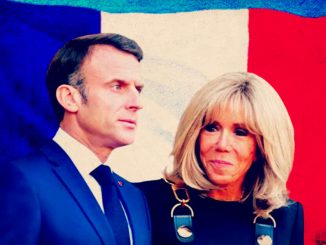
Published July 24, 2025
Zelensky Faces Mounting Protests Amid Power Grab and Pushback on Anti-Corruption Reform
Kyiv, Ukraine – July 24, 2025 A wave of public dissent is intensifying across Ukraine for a second straight day, as citizens pour into the streets to protest what many are calling a dangerous consolidation of power by President Volodymyr Zelensky. Cries of “Zelensky is the Devil!” have echoed across major cities, as tensions rise over the government’s efforts to restructure the country’s anti-corruption infrastructure—once heralded as a cornerstone of Ukraine’s Western-backed democratic reform.
On Monday, demonstrators gathered in Kyiv and other regions, accusing Zelensky of undermining Ukraine’s democratic institutions and betraying the people’s trust. The demonstrations gained traction following Zelensky’s controversial move to place independent anti-corruption agencies under the authority of the Prosecutor General—effectively putting them within the executive’s direct control.
Critics argue that this is a clear power grab, raising alarms both within Ukraine and internationally.
Western-Backed Agencies Under Threat
Ukraine’s anti-corruption agencies—the National Anti-Corruption Bureau of Ukraine (NABU) and the Specialized Anti-Corruption Prosecutor’s Office (SAPO)—were originally set up under the guidance and funding of Western partners, including key U.S. figures like Victoria Nuland. These agencies were designed to operate independently from political pressure, especially amid the war and post-Maidan restructuring.
However, Zelensky’s latest actions appear aimed at dismantling that independence. Russian media sources have suggested this may not only weaken Western influence but also enable greater executive control under the guise of purging “Russian influence.”
Speaking to this intent, Zelensky announced, “I spoke with NABU Director Semen Kryvonos, SAPO Prosecutor Oleksandr Klymenko, Prosecutor General Ruslan Kravchenko, and Head of the Security Service of Ukraine Vasyl Maliuk. We discussed various challenges. The anti-corruption infrastructure will work. Only without Russian influence—it needs to be cleared of that. And there should be more justice.”
Despite these reassurances, skepticism abounds. Many observers point out that Zelensky’s promise to “preserve the independence of anti-corruption bodies” conflicts with his administration’s recent actions.
“I will propose to the Verkhovna Rada of Ukraine a bill that will be a response, which will ensure the strength of the law enforcement system. There will be no Russian influence or interference… and all norms for the independence of anti-corruption institutions will be preserved,” Zelensky stated.
International Alarm Bells
The backlash is not limited to Ukrainian citizens. European leaders are reportedly preparing to confront Zelensky over the reforms. According to Sputnik, German Chancellor Friedrich Merz and French President Emmanuel Macron plan “intensive talks” with Zelensky to express concern over Ukraine’s controversial restructuring of its anti-corruption agencies.
German media outlets report that the proposed changes could severely undermine Ukraine’s democratic credibility, just as it continues to seek further military and financial support from the West.
In Washington, the criticism was swift and sharp—even from staunch Ukraine supporters. U.S. Senator Lindsey Graham, one of the Senate’s most vocal advocates of aid to Kyiv, didn’t mince words. He slammed the move as one that “undermines progress” and “risks future U.S. support.”
Ukrainian protestors chant:
– We are not idiots
– Yermak should F off
– Zelensky is the devil pic.twitter.com/dUhcr72Sif— Lord Bebo (@MyLordBebo) July 23, 2025
‘Re-vote, re-vote’ — young Ukrainians take to the streets protesting the crackdown against anti-corruption agencies
Is Ukraine getting a new Maidan? pic.twitter.com/jEKV9UwQAq
— RT (@RT_com) July 23, 2025
A Crossroads for Ukraine
The Zelensky administration appears to be walking a tightrope between consolidating wartime power and maintaining international support. For citizens on the streets, the message is clear: they see Zelensky’s centralization of authority as a betrayal of the democratic values they fought for during the Maidan revolution.
Meanwhile, Ukraine’s Western backers are faced with a critical dilemma—how to continue supporting a nation fighting for its survival while confronting the creeping authoritarian tendencies of its leadership.
As protests grow and foreign leaders voice alarm, Ukraine may be entering a defining moment. Whether Zelensky adjusts course or doubles down could determine not only the trajectory of his presidency but also Ukraine’s path as a sovereign democratic state.
A clear and concise report from Reuters showing crowds in Kyiv rallying against the new law that reduces the autonomy of NABU and SAPO.
France 24 digs into Zelensky’s response, explaining how he plans to address protests and restore public trust.
 Resulting Effects:
Resulting Effects:
Here are the resulting effects—both actual and potential—of Zelensky’s actions and the growing protests, categorized into domestic, international, and political/military consequences:
🇺🇦 Domestic Effects in Ukraine
1. Escalating Public Unrest
The protests mark a serious shift in public sentiment. Many Ukrainians feel betrayed, especially those who supported Zelensky during his anti-corruption platform. The chant “Zelensky is the Devil” shows that public trust is rapidly eroding. This could snowball into larger unrest or even civil disobedience if reforms move forward without transparency.
2. Erosion of Democratic Institutions
By placing independent anti-corruption agencies under the Prosecutor General, Zelensky risks collapsing the framework designed to limit executive overreach. This move may set a precedent for future centralization of power, undermining checks and balances.
3. Civil Society Pushback
NGOs, watchdogs, and reformist lawmakers will likely increase pressure on the government. Investigative journalists and anti-corruption advocates may face growing censorship or retaliation, sparking more activism and possible legal battles.
4. Political Fragmentation
Zelensky’s popularity has already declined in some sectors. Opposition parties, including those sidelined during the war, might regroup and use this crisis as an opportunity to re-enter the political scene.
🌍 International Consequences
1. Threat to Western Financial and Military Aid
Zelensky’s changes have prompted backlash from Western allies. As Senator Lindsey Graham warned, this move “risks future U.S. support.” Ukraine’s access to billions in aid may now hinge on demonstrating credible anti-corruption practices.
2. Diplomatic Strain with Europe
French President Macron and German Chancellor Merz are reportedly preparing “intensive talks” to confront Zelensky. Failure to satisfy their concerns may weaken EU political solidarity and delay Ukraine’s EU accession process.
3. Shift in U.S. Congressional Support
Some U.S. lawmakers—especially in a divided Congress—may use this scandal as justification to pull back funding or call for stricter conditionality on future aid packages.
4. Opening for Russian Narratives
Russian state media will seize on the optics of Western-backed institutions being dismantled by Zelensky. Moscow could frame this as proof that Ukraine is a “failed democracy” controlled by corrupt elites.
⚔️ Political and Military Impact
1. Internal Distraction During Wartime
The government may now be forced to divert attention and resources from the battlefield to manage political chaos. That split focus could weaken operational effectiveness against Russian forces.
2. Lower Morale Among Soldiers and Citizens
If Ukrainians feel they’re fighting not only a foreign invader but also corruption from within, morale on the frontlines and at home may dip, especially among younger Ukrainians who rallied for reforms post-Maidan.
3. Potential Reshuffling in Government
To calm the outrage, Zelensky may be pressured into replacing key officials or even scaling back the reforms. If not, further resignations or internal mutiny could destabilize his administration.
 Bottom Line:
Bottom Line:
President Zelensky’s attempt to restructure Ukraine’s anti-corruption institutions has ignited a political firestorm—both at home and abroad. What began as a promise to protect national sovereignty and root out foreign or Russian influence is now being widely interpreted as a troubling move toward authoritarianism.
The backlash has been swift: Ukrainians are protesting in the streets, international allies are expressing deep concern, and even the most steadfast supporters in the U.S. and Europe are reconsidering future aid and support.
Zelensky now stands at a crossroads. He can either listen to public and international outcry, revise the proposed reforms, and restore trust in Ukraine’s democratic institutions—or he can press forward, risking greater instability, loss of Western support, and a deepening divide within the country.
In a nation fighting for its survival, the battle against corruption must not become a mask for consolidating power. If Ukraine is to win both on the battlefield and in the hearts of its people, it must uphold the very democratic values it claims to defend.





Be the first to comment